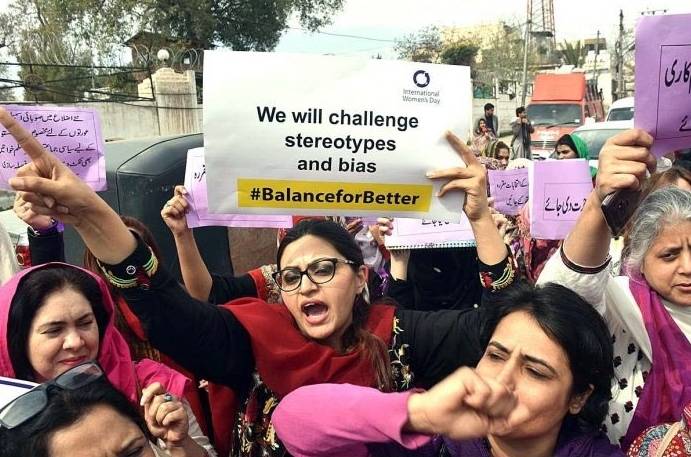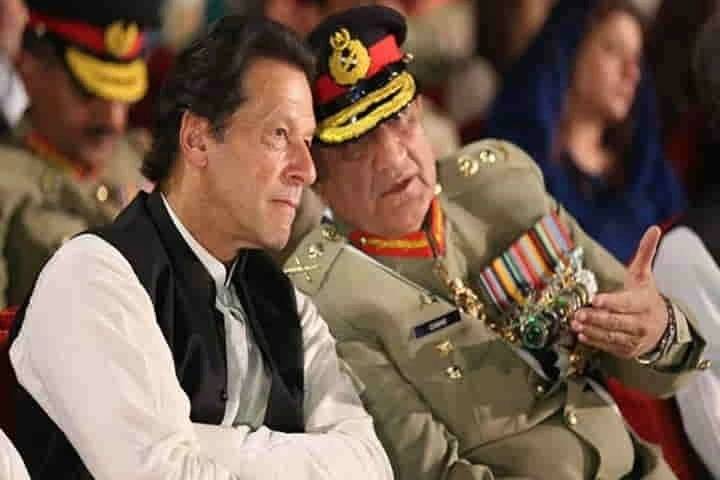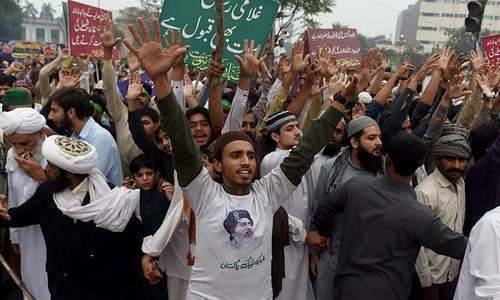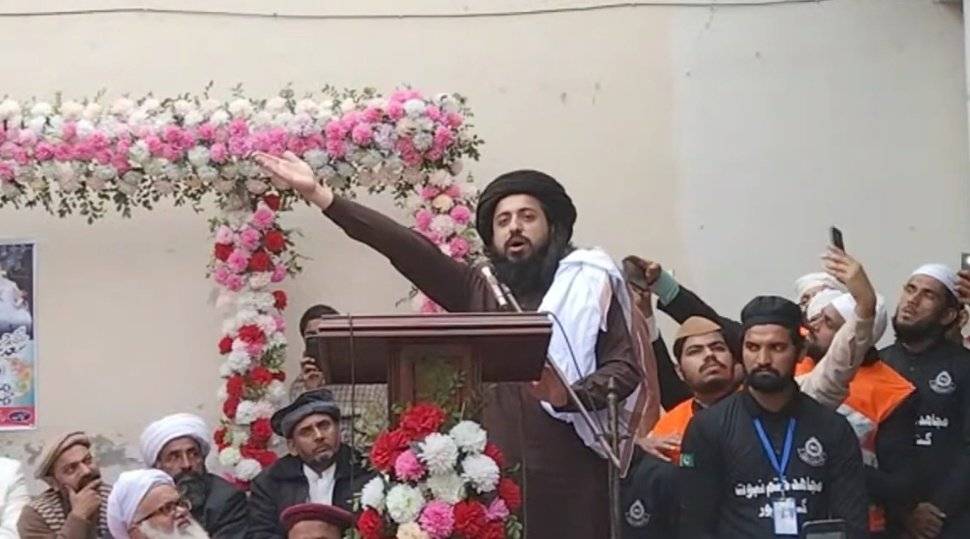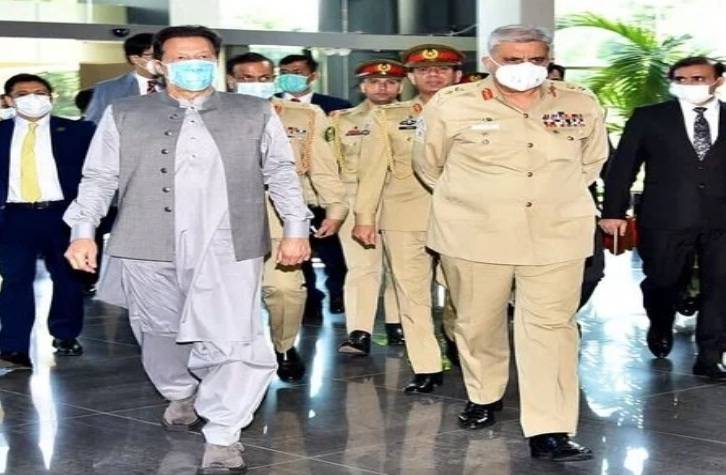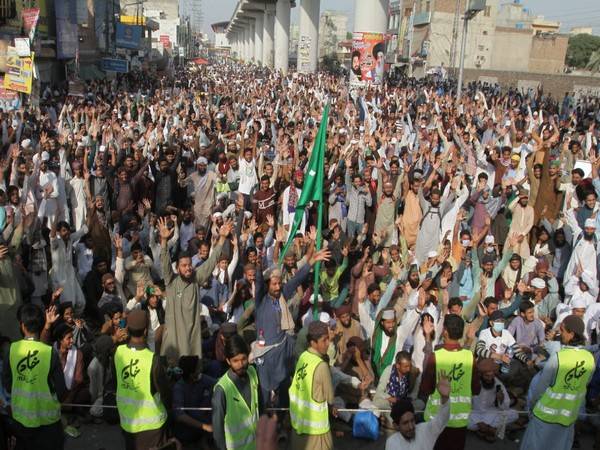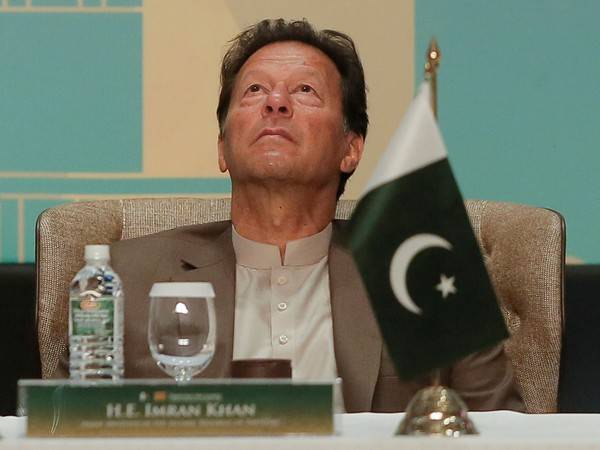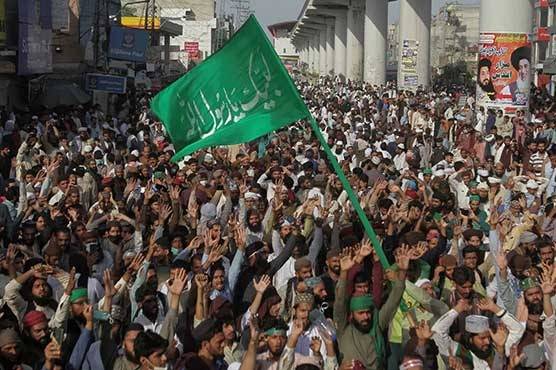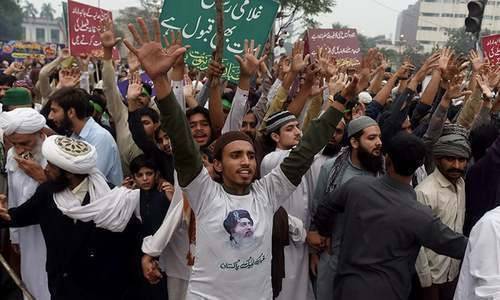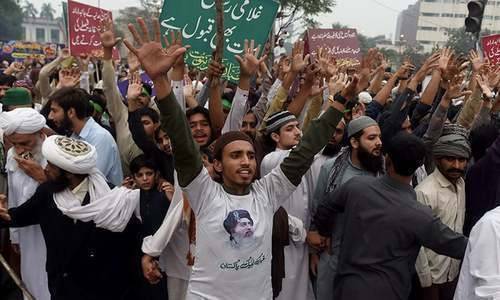“If any attempts are made for obscenity on March 8 in Islamabad, we will condemn it,” Abdul Majeed Hazarvi, the chief of JUI-F Islamabad wing had warned….reports Asian Lite News
Pakistan’s opposition party Tehreek-i-Labbaik Pakistan (TLP) has voiced its opposition to the Aurat March, women’s rights movement in Pakistan saying it was against the norms of the society as well as Islam.
This comes at a time when other parties like Jamiat Ulema-i-Islam-Fazl (JUI-F) and the ruling Pakistan Tehreek-e-Insaf (PTI) which are at loggerheads, have also come together to oppose Aurat March.
TLP leader Mohammad Yaqub Saifi on Saturday said the participants of the Aurat March chanted unethical slogans. He further opposed the holding of the march on the occasion of the International Women’s Day on March 8, reported the Dawn.
Earlier, ahead of Aurat March that coincides with International Women’s Day, the federal religious affairs minister and a leading light of the JUI-F have both termed it ‘un-Islamic’.
“If any attempts are made for obscenity on March 8 in Islamabad, we will condemn it,” Abdul Majeed Hazarvi, the chief of JUI-F Islamabad wing had warned.
Their argument would have weight if backed by logic, knowledge or even plain common sense but their driver appears to preconceived, archaic notions about a woman’s place in society and outright misogyny.
Anyone questioning the legitimacy of the women’s rights movement need not embark on a deep study of history or sociology but merely look at a few recent incidents to understand why the status quo is unacceptable, as it is patently unjust, the Dawn reported.
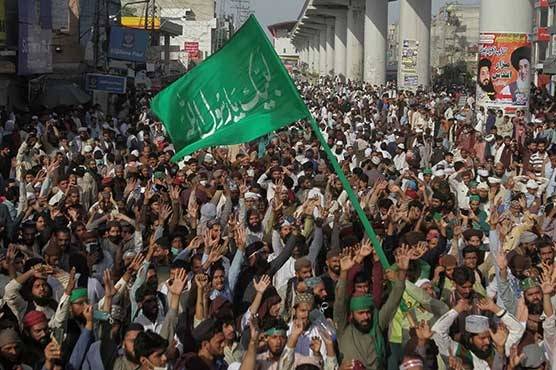
Focus on wages, security, peace
The Aurat March will focus on wages, security and peace for women, local media reported.
The slogan for this year’s Aurat March on International Women’s Day is Ujrat, Tahaffuz Aur Sukoon, said social worker Sheema Kermani at a press conference at the Karachi Press Club (KPC) on Thursday. She said this year, it will be the fifth Aurat March, Dawn newspaper reported.
After her speech, an organiser of the march put forward the three central demands saying that the march is dedicated to the labour and hard work of women and khawajasira.
The three demands include that “all workers, whether they’re working in factories, on farms and homesteads, in homes as domestic workers or as sanitation workers be given a living wage based on access to safe housing, quality education and affordable healthcare for themselves and their families. As a first step immediate reinforcement of the minimum wage across all sectors, and for all actors who refuse this to be fined under the law,” the Pakistani newspaper reported.
“The provision of social security and protection through monthly stipends for all women and khawajasira community in view of the care labour they perform and economic violence they are subjected to,” Dawn newspaper reported.
“The state prioritise the welfare of the child by putting an end to child labour, trafficking for work, and bonded labour. The government should provide childcare and protection centres and child support services in every district of Karachi and in the rest of Sindh,” the Pakistani newspaper reported. (ANI)

